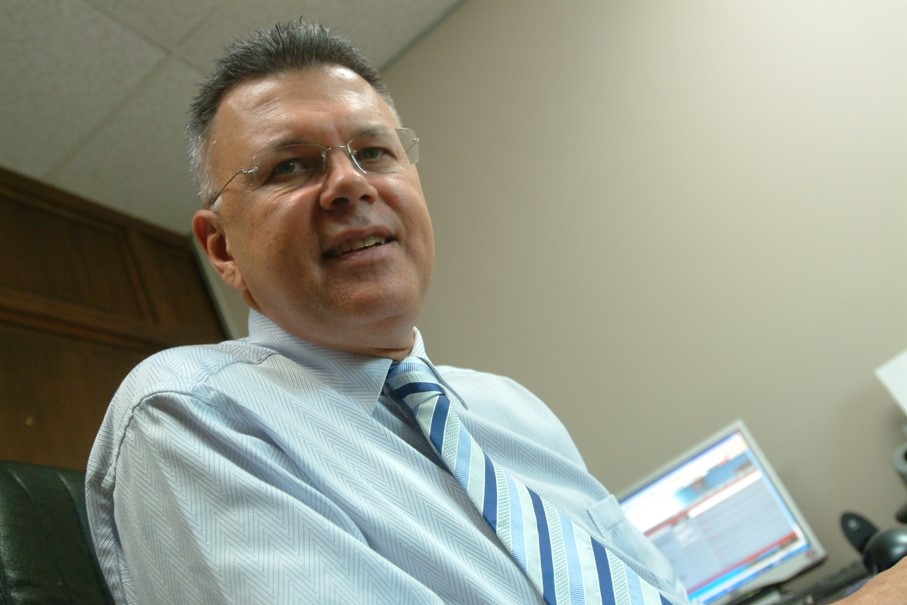Meet Richard Morgan, co-founder of Aspec Engineering, a firm renowned for tackling complex projects in the mining and materials handling sectors. In this interview, Richard shares insights into ASPEC’s journey since its inception in 2003, detailing the specialised knowledge and strategic decisions that have shaped its success.
Aspec Engineering is a specialised engineering consultancy company, which applies its knowledge and expertise to particularly difficult projects in the mining and materials handling sectors.
Headquartered in Brisbane, with additional offices in Newcastle, Perth and Wollongong, Aspec Engineering offers a wide range of services, including operations with life extension projects, risk reduction, and performance improvement initiatives.
After working many years for BHP Engineering, Richard Morgan and his colleague Frank Gatto decided to go into business themselves and founded Aspec Engineering in 2003.
“As we are both structural engineers from the University of Queensland, and successfully managed BHP’s structural assets and structural engineering group, we knew we had all the skills required,” said Richard.
“Our main focus since starting the company has been on materials handling systems and infrastructure for the mining industry, but we’ve also conducted many investigation projects and life extension work on existing facilities, in addition to areas such as risk studies and value engineering studies.
“Our work is based on identifying critical issues. Once we have identified them, we move on to retrofit designs for existing plants or machines,” Richard explained.
Client’s Choice
Richard said when he and Frank set up Aspec Engineering, there was a strong demand for their services because of the company’s expertise in mobile machines and ship loaders. In the years since, the demand for those services has stayed strong, and the company has changed very little.
“We’re still a specialised company, recognised for our expertise. Often clients will direct their engineers handling projects to get us involved, specifically on the design auditing for material handling equipment and the design verification for proposed expansions.”
Over the years, Aspec Engineering has acted as a consultant on numerous high profile projects—for example, BMA’s Hay Point HPX3 port expansion.
The company has also contributed to the Caval Ridge project in Queensland where they were in charge of material handling machine engineering verification, and have been the auditors for Rio Tinto in the Cape Lambert B port facility.
“Because we are relatively small and specialised, we’re not in competition with the large engineering companies. They are usually very comfortable with us being in a consultant role because we are not a threat to them. Rather, we get involved with major companies on projects because they recognise our expertise,” Richard said.
Organic Growth
Over time, Richard and Frank have grown the company to meet the demand for their services.
“We have built by organic growth a confident group of engineers that are highly skilled and have an overall good reputation for what they do.”
The business is structured on a team environment, where everyone in the business is important—from the receptionists, to those in document control, to even the most skilled engineers.
In order to attract and retain all their employees, Aspec Engineering has become an “industry leader” in the area of specialised engineering.
That leadership is partially bolstered by the company’s association with the Australian Standards Committee for Bulk Handling Equipment, where Richard is chairman. However, he says it’s about knowledge too.
“Clients come back to us for repeat business because we know a lot about their plants and equipment, so if they engage us, they know they will not be paying for someone to get up to speed with all the issues.
“For us, having the same people involved keeps the knowledge current and it makes it more efficient to solve projects for the client,” Richard said.
The Future
ASPEC is also focusing on infrastructure projects and is proud to be working with Rendel for major infrastructure work including rail systems, bridges and tunnels. Rendel is a UK-based multidisciplinary international design and engineering team with a history spanning over 175 years.
“ASPEC has an ongoing relationship with Rendel Limited working together for 9 years. ASPEC represents Rendel in Australia and we are continuing to pursue joint opportunities in related markets, particularly for major infrastructure work.” Richard said.
ASPEC and Rendel are currently involved as the Design Audit Engineer for the Northwest Rail Link Bridges.
Although the company has steadily grown over the years, Richard says they are in no rush to expand fast. They are however, placing themselves in a position that will benefit them if the economy does improve. “We will continue our high quality service, we will continue to be a specialist, and we will continue to carry a good reputation,” Richard says. “If the economy does improve, however, our expansion would occur to meet the demand through organic growth.”
In preparation for upcoming years, Aspec Engineering has considered the important drivers in the mining and material handling industry, and has concluded that efficiency as well as environmental considerations will be of the utmost importance.
“We’re focused on the environment and we are working to get more efficiency out of the current plants,” says Richard. “We will be looking into facilities with a low energy profile and ship loading concepts to fill ships quicker with minimal delays.”
“These types of things will be important in our future,” he concludes.
